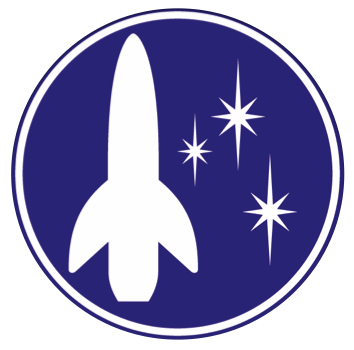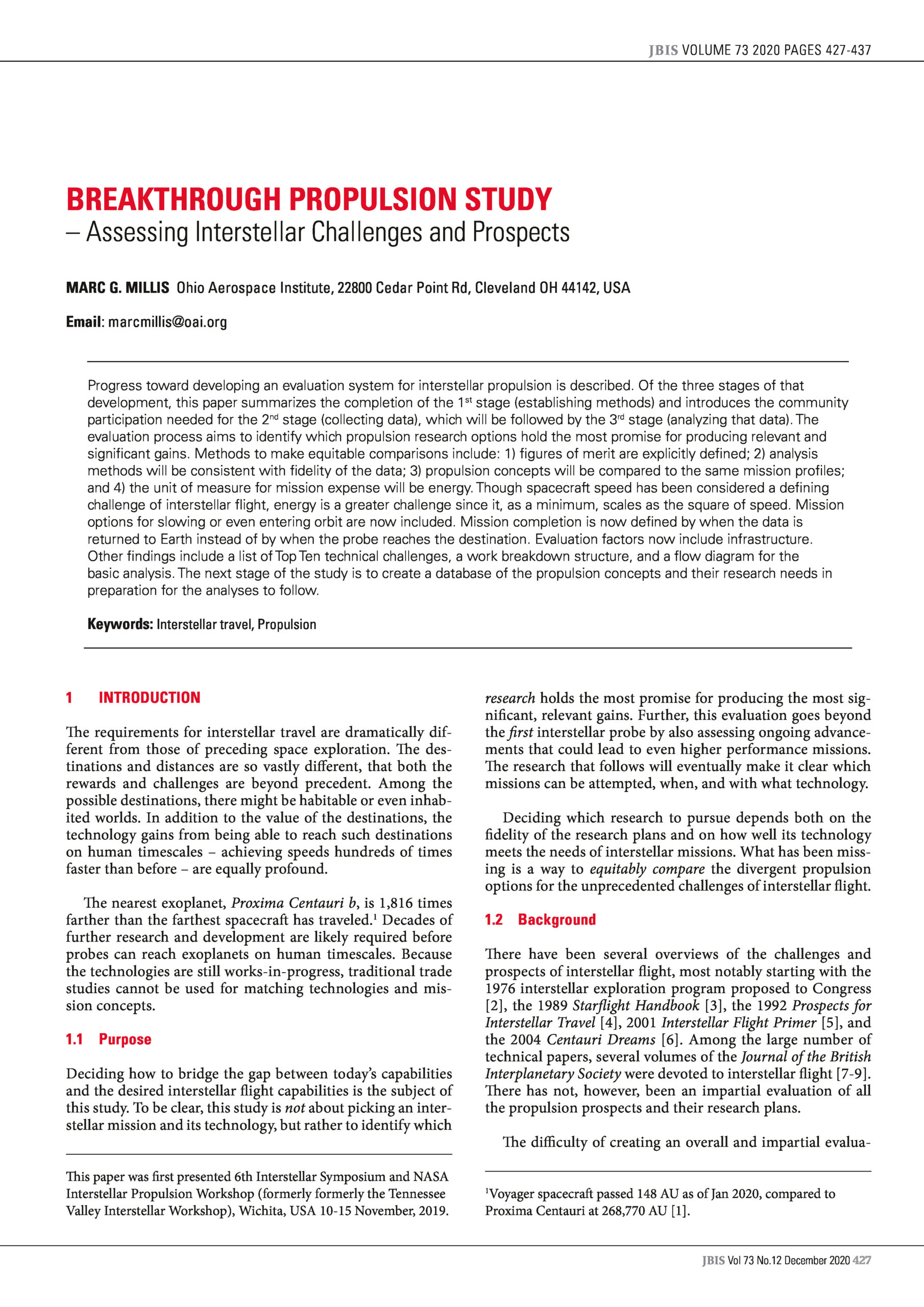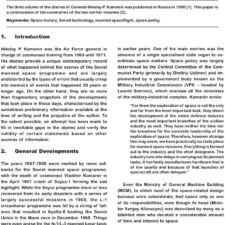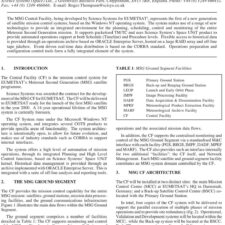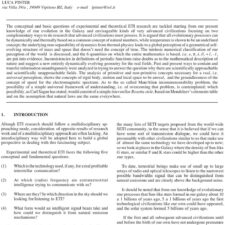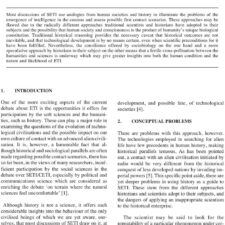Breakthrough Propulsion Study – Assessing Interstellar Challenges and Prospects
£5.00
M. G. Millis (2020), JBIS, 73, pp.427-437
Refcode: 2020.73.427
Keywords: Interstellar travel, Propulsion
Abstract:
Progress toward developing an evaluation system for interstellar propulsion is described. Of the three stages of that development, this paper summarizes the completion of the 1st stage (establishing methods) and introduces the community participation needed for the 2nd stage (collecting data), which will be followed by the 3rd stage (analyzing that data). The evaluation process aims to identify which propulsion research options hold the most promise for producing relevant and significant gains. Methods to make equitable comparisons include: 1) figures of merit are explicitly defined; 2) analysis methods will be consistent with fidelity of the data; 3) propulsion concepts will be compared to the same mission profiles; and 4) the unit of measure for mission expense will be energy. Though spacecraft speed has been considered a defining challenge of interstellar flight, energy is a greater challenge since it, as a minimum, scales as the square of speed. Mission options for slowing or even entering orbit are now included. Mission completion is now defined by when the data is returned to Earth instead of by when the probe reaches the destination. Evaluation factors now include infrastructure. Other findings include a list of Top Ten technical challenges, a work breakdown structure, and a flow diagram for the basic analysis. The next stage of the study is to create a database of the propulsion concepts and their research needs in preparation for the analyses to follow.
